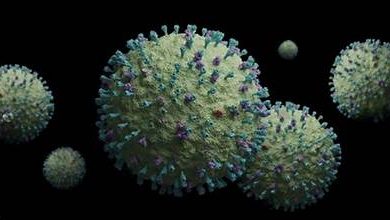
Dad jokes are more than just simple, pun-laden quips; they are a cultural phenomenon that has stood the test of time. With their roots deeply embedded in family traditions, dad jokes have transcended generations, bringing laughter and groans to dinner tables worldwide. But what is it about these seemingly silly jokes that makes them so enduring? And how do they play a role in shaping relationships between parents and children?
This blog post aims to explore the delightful world of dad jokes and their significance in nurturing bonds within families. From understanding the essence of a dad joke to uncovering the science behind laughter, this guide will provide insights into how humor can strengthen family ties.
What Makes a Dad Joke?
At first glance, a dad joke might seem like a straightforward pun or play on words, but there’s a unique complexity to crafting these gems. A classic dad joke often relies on a combination of wordplay, absurdity, and gentle surprise to deliver its punchline. The element of surprise is crucial; the joke catches the listener off-guard, leading to the characteristic groan or chuckle.
For example, consider this dad joke:
“Why don’t skeletons fight each other? They don’t have the guts.”
This joke uses a play on words, with “guts” referring both to courage and the literal absence of organs in skeletons. It’s this clever twist that elicits a response and creates a memorable moment.
Dad jokes are typically short and sweet, making them easy to remember and share. They thrive on predictability, often leading listeners to anticipate the punchline, which adds to the humor when the expected outcome is subverted. This anticipatory element is a hallmark of dad jokes, providing a sense of playful interaction between the joke-teller and the audience.
The Science Behind Laughter
While dad jokes might be groan-inducing, they have a peculiar way of making us laugh despite their simplicity. The science behind laughter is fascinating, as it involves both psychological and neurological processes. When we hear a joke, our brain processes the language and attempts to predict the punchline. The unexpected twist in a dad joke triggers a release of dopamine, a neurotransmitter associated with pleasure and reward, resulting in laughter.
Humor also activates the brain’s frontal cortex, which is responsible for recognizing and processing incongruities. This cognitive engagement is why even the simplest of jokes can capture our attention and elicit a reaction. Laughter is not just a response to humor; it is a social behavior that promotes bonding and connection among individuals.
Interestingly, laughter has numerous health benefits, such as reducing stress, boosting the immune system, and increasing pain tolerance. By incorporating humor into daily life, especially through dad jokes, families can enjoy these benefits while fostering a positive atmosphere at home.
The Role of Dad Jokes in Building Relationships
Beyond their comedic value, dad jokes serve as a powerful tool for building relationships between parents and children. Sharing a laugh creates an emotional connection, helping to strengthen familial bonds and enhance communication. When parents share dad jokes with their children, they create opportunities for lighthearted interaction and shared experiences.
For instance, consider a parent who regularly incorporates dad jokes into their daily routine. This playful approach can make mundane activities more enjoyable and memorable for their child. By weaving humor into everyday moments, parents can foster a sense of closeness and trust with their children.
Personal anecdotes from families reveal the impact of dad jokes on relationships. One parent shared how their child would eagerly anticipate bedtime stories, not just for the tales themselves but for the inevitable dad joke that would follow. This ritual became a cherished part of their routine, reinforcing the bond between parent and child.
Going Beyond the Groan: The Value of Dad Jokes
While dad jokes may be perceived as simple or corny, their true value lies in their ability to bring joy and laughter to everyday life. Humor plays a crucial role in family dynamics, offering numerous benefits that go beyond entertainment. By incorporating dad jokes into daily interactions, families can create a positive and supportive environment that encourages open communication and emotional well-being.
To make the most of dad jokes, consider the following tips:
- Be Genuine:
Share jokes that resonate with your personality and sense of humor. Authenticity enhances the impact of the joke and fosters a genuine connection with your audience.
- Know Your Audience:
Consider the preferences and sensitivities of your family members. Tailor your jokes to suit their age and interests, ensuring that everyone can enjoy the humor together.
- Create Rituals:
Establish regular opportunities for sharing dad jokes, whether during family meals, car rides, or bedtime routines. Consistent humor can become a beloved tradition that strengthens family bonds.
By integrating dad jokes into your family’s daily life, you can harness the power of humor to create lasting memories and reinforce the connections that matter most.
Conclusion
In a world where connections are increasingly digital, dad jokes offer a timeless and heartfelt way to strengthen family relationships. Their enduring appeal lies in their ability to bring laughter and joy to even the most mundane moments. By understanding the essence of a dad joke and the science behind laughter, parents can leverage humor to build meaningful connections with their children.
We encourage you to share your favorite dad jokes and experiences in the comments below. And if you’re eager for more content that celebrates the joys of family life, be sure to subscribe to our newsletter. Together, let’s continue to foster laughter and love through the art of dad jokes.



